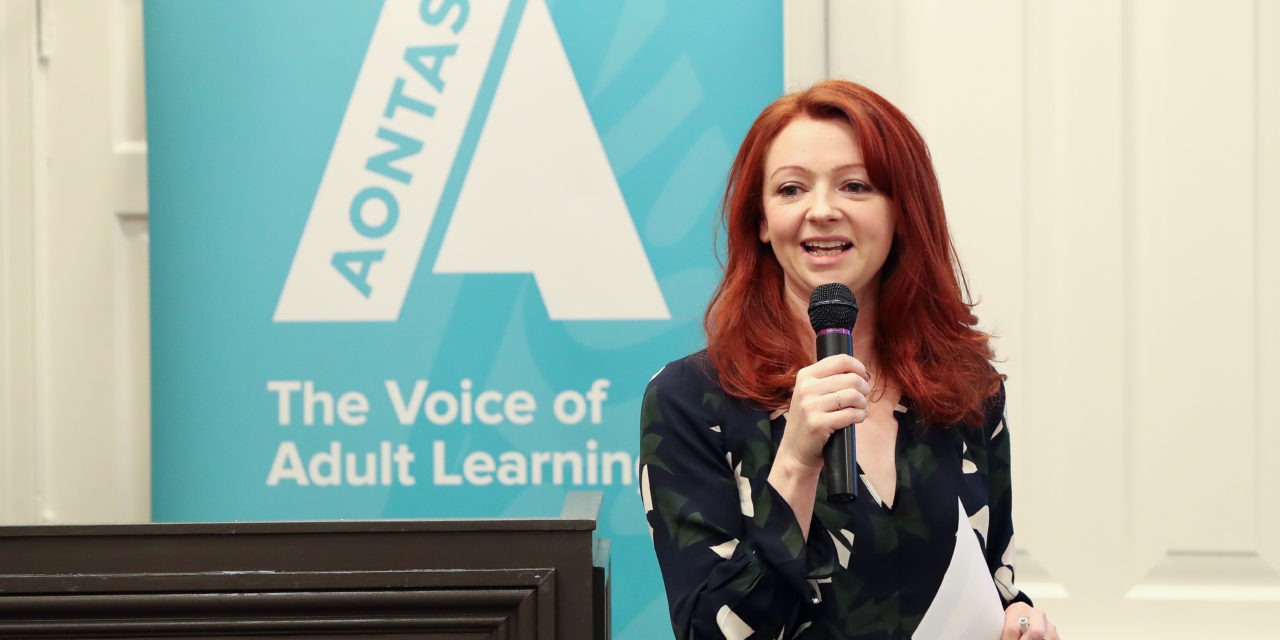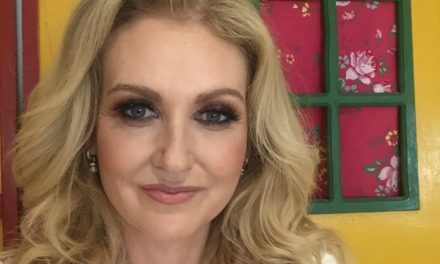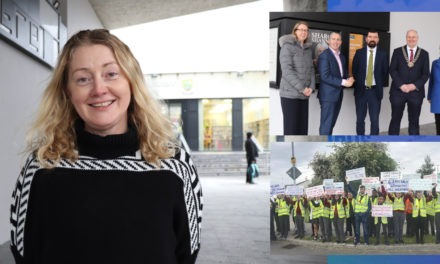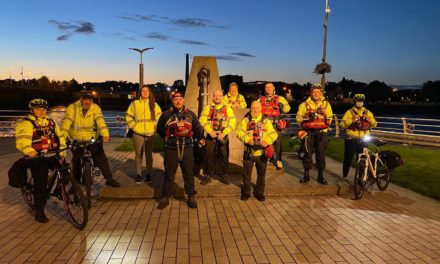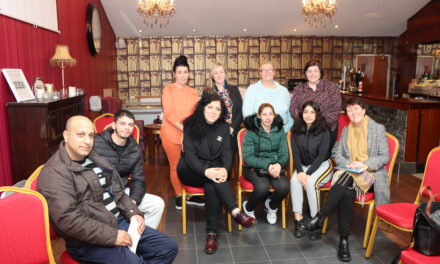Aontas wants a national strategy to address the pandemic’s long-term impact on “marginalised learners and the community education and FET sector”. Pictured above: Niamh O’Reilly, Aontas CEO.
Aontas CEO Niamh O’Reilly has called on the Government “to develop a national strategy to address the long-term impact of Covid-19 on engagement, retention and progression across tertiary education, with a specific focus on marginalised learners and the community education and FET sector.”
“Part of this strategy should include an additional Mitigating Against Educational Disadvantage Fund for community education and actions to address digital poverty, access to devices, internet and resource courses aimed at building skills to learn online,” she said.
“Covid-19 has exposed systemic inequalities which must be tackled. Digital poverty must be addressed especially as the majority of courses are now online. We can use this opportunity to reaffirm our commitment to inclusion and properly valuing adult learning,” she added.
Ms. O’Reilly was speaking at this year’s national AONTAS STAR Awards which were announced online, the winners of which are:
Power in Participation is a collaborative project involving Galway Traveller Movement, the Community Action Network, and NUIG’s community education section. The project examines the impact of an outreach Diploma in Community Development Practice on the personal and professional lives of programme graduates, all of whom are from the Traveller community. A key focus of the project is promoting access to educational opportunities and widening participation in higher education for under-represented groups. Power in Participation won in the Third Level Access and Engagement category.
Roscommon Women’s Network’s Cycle Up project is a community environmental protection initiative where participants design and up-cycle textiles, while raising awareness about protecting the environment. The group also explores environmentally-friendly income generation models and opportunities. Cycle Up was a winner in the Sustainable Development through Education category.
Age Friendly Roscrea, based in Tipperary, won for their ‘Care and Connection through Covid’ initiative which provided an essential service to people – including care packages, support and friendship services, and health and safety information about Covid-19. It won in the Health and Wellbeing – Small/Medium Organisation category.
East Limerick Traveller Project is a collaborative project between Ballyhoura Development and the HSE’s Traveller Health Unit (Mid West). The project works with the Traveller Community to improve health outcomes and the quality of life for Travellers in East Limerick. It won in the Health and Wellbeing – Large Organisation category.
The Aiseiri Progression Programme, based in Waterford, won the Social Inclusion award for small and medium-sized organisations. Their specialised education and training programme supports men and women in addiction treatment and in the early years of addiction recovery to access meaningful education and training. The programme also looks at setting goals for work and equipping participants with the skills and confidence to achieve these goals.
The Irish Wheelchair Association won the Social Inclusion award for large organisations. Its Ability Programme provides job seeking and employability skills coaching to young people aged 18 – 29 with any physical disabilities. Ability focuses on developing decision-making skills, critical thinking, self-directed learning and self-advocacy.
Belfast Recovery College was a winner in the Learner Voice category. Its unique learning and leadership initiative is called ‘Making Silent Voices Heard’ and it places the learner’s voice at the core of the college. The programme enables learners to pursue their dreams to participate as equal citizens in economic, educational, community, social inclusion and family life.
Blossom Ireland is based in Dublin and won an award for their ‘My Blossom Channel Assertiveness Course’ which provides skills-based training and support for young people with an intellectual disability between the ages of 15 and 20.
The assertiveness course was delivered through an accessible blended learning model and they were the winners in the Mitigating Educational Disadvantage through Innovation (during COVID-19).
WALK, based in Dublin, won the European Social Fund Special Recognition Award for their ‘REAL Ability Project’. It kept service users connected and motivated during the pandemic by providing an accessible online space for them and staff to share information and resources.

